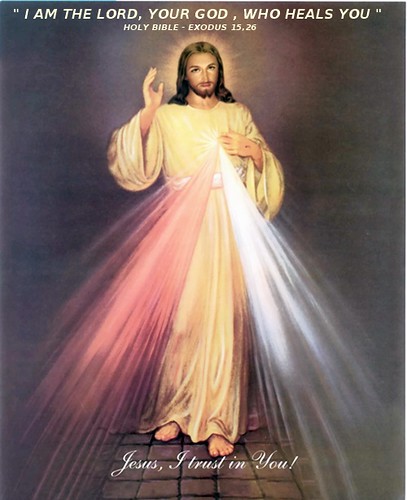Introduction
Exploring the Meaning and Significance of Proverbs 8:22-30
Understanding the Personification of Divine Wisdom in the Bible
Unveiling the Connection between Proverbs 8:22-30 and the Word Incarnate (Jesus)
The passage of Proverbs 8:22-30 holds great significance in understanding the concept of Divine Wisdom and its connection to the Word Incarnate, Jesus. In this section, we will delve deeper into the meaning and importance of this passage, exploring the personification of Divine Wisdom in the Bible and unveiling the profound connection it has to Jesus.
Divine Wisdom, personified in Proverbs 8:22-30, presents a vivid picture of the attributes and characteristics of wisdom. It allows us to comprehend wisdom on a more relatable and personal level, enabling us to grasp its significance in our lives. This section will shed light on the personification of Divine Wisdom in the Bible and its implications for our understanding of wisdom.
The personification of Divine Wisdom in Proverbs 8:22-30 invites us to explore the connection between this wisdom and the Word Incarnate, Jesus. By examining the theological and textual links between these concepts, we can gain insight into the role of Jesus as the embodiment of Divine Wisdom. This section will further elucidate the profound connection between Proverbs 8:22-30 and the Word Incarnate.
#Messianicwisdom #Proverbs8interpretation #Divinewisdom #Messianichope #Biblicalprophecy #JesusasMessiah #OldTestamentprophecy #WordofGod #Messianicfulfillment #SonofGod #Wisdomincarnate #TheWordmadeflesh #Propheticwisdom #SalvationthroughtheMessiah
Explanation of Proverbs 8:22-30
Verse-by-verse breakdown of Proverbs 8:22-30
Describing the eternal existence of Divine Wisdom with God [1]
Depicting the role of Divine Wisdom in the creation of the world [3]
Emphasizing the delight and presence of Divine Wisdom in humanity [3]
To fully grasp the significance of Proverbs 8:22-30, it is essential to delve into a verse-by-verse breakdown of the passage.In verse 22, we encounter the affirmation of Divine Wisdom’s eternal existence alongside God, highlighting its divine nature and close association with God. This eternal existence further emphasizes the timeless and unchanging nature of Divine Wisdom.
Moving forward, Proverbs 8:23-26 depicts the role of Divine Wisdom in the creation of the world.These verses reveal that Divine Wisdom was present before the foundations of the earth were laid, symbolizing its active involvement in the formation of the universe. It underscores the divine wisdom behind the act of creation and the intentionality in every aspect of the world.
Proverbs 8:27-30 highlights the delight and presence of Divine Wisdom in humanity. It portrays Divine Wisdom as a joyful companion, rejoicing in the creation of human beings and delighting in their existence. This depiction emphasizes the desire of Divine Wisdom to guide and bless humanity, offering its wisdom to those who seek it.
Interpretation of Divine Wisdom
The Concept of Divine Wisdom in the Old Testament
Understanding the attributes and characteristics of Divine Wisdom [2]
Recognizing the role of Divine Wisdom as a guide for human life [1]
Exploring the connection between Divine Wisdom and moral understanding [2]
The concept of Divine Wisdom is not exclusive to Proverbs 8:22-30 but is present throughout the Old Testament. Divine Wisdom encapsulates attributes such as knowledge, understanding, and righteous guidance.It serves as a guide for human life, leading individuals on the path of righteousness and endowing them with discernment. Divine Wisdom is the source of moral understanding and insight.
The attributes and characteristics of Divine Wisdom further deepen our understanding of its significance. Wisdom is not merely the accumulation of knowledge but also the ability to apply that knowledge in a righteous and discerning manner. It encompasses qualities such as prudence, discernment, and insight, enabling individuals to navigate the complexities of life. Divine Wisdom is a divine gift that provides guidance and direction for human existence.
Divine Wisdom serves as a guide for moral understanding, offering insights into the nature of righteousness and the ways of God. It enables individuals to discern between right and wrong, leading them towards a life that aligns with God’s will. The pursuit of Divine Wisdom is essential for moral growth and spiritual development, as it brings individuals closer to God’s divine purposes.
Connection to the Word Incarnate (Jesus)
Jesus as the Embodiment of Divine Wisdom
Examining different interpretations of Proverbs 8:22-30 in relation to Jesus [3]
Unveiling Jesus as the pattern of creation and the image of God [3]
Understanding Jesus’ role in redemption and the folly of the crucifixion [3]
The connection between Proverbs 8:22-30 and the Word Incarnate, Jesus, is a topic of theological exploration. Various interpretations have been put forth to understand the relationship between Divine Wisdom and Jesus in this passage. One interpretation sees Jesus as the fulfillment of the personified Wisdom described in Proverbs 8:22-30.
By examining different interpretations, we gain a broader understanding of the profound connection between Divine Wisdom and Jesus. Proverbs 8:22-30 portrays Jesus as the pattern of creation and the image of God. Just as Divine Wisdom played a role in the creation of the world, Jesus is seen as the agent of creation in other biblical texts, such as John 1:3 and Colossians 1:15-17. This connection underscores the significance of Jesus as the embodiment of Divine Wisdom.
Furthermore, the crucifixion of Jesus, though appearing as folly, reveals the redemptive role of Divine Wisdom. The wisdom of God is demonstrated through the redemption made possible by Jesus’ sacrificial death on the cross. The crucifixion, which may seem like folly to human understanding, becomes the means of ultimate wisdom and salvation.
Significance of Personifying Wisdom in the Bible
Personification as a Literary Device in the Bible
Exploring the use of personification in biblical wisdom literature [1]
Understanding the purpose of personifying wisdom in Proverbs 8:22-30 [1]
Reflecting on the implications of personifying wisdom for human understanding [2]
Personification is a prevalent literary device used in the Bible, including in biblical wisdom literature. It allows abstract concepts, such as wisdom, to be expressed in tangible and relatable terms. By personifying wisdom, the biblical authors enable readers to engage with this attribute of God on a more personal and accessible level.
In the case of Proverbs 8:22-30, the personification of wisdom serves to emphasize its relevance and significance in human life. Personifying wisdom enables individuals to develop a personal relationship with wisdom, allowing it to be their guide and teacher. Wisdom becomes relatable and approachable, offering its insights and guidance to all who seek it.
The personification of wisdom in Proverbs 8:22-30 has profound implications for human understanding. It invites individuals to recognize the active and personal presence of wisdom in their lives. Wisdom is not an abstract concept but a tangible reality that can shape and transform human existence. Embracing the personified wisdom in Proverbs 8:22-30 leads to a deeper understanding of God’s ways and a fuller life in accordance with divine purposes.
Proverbs 8:22-30 and the Doctrine of the Incarnation
The Doctrine of the Incarnation in Christianity
Explaining the theological significance of the incarnation [1]
Analyzing the challenge of connecting Proverbs 8:22-30 to Jesus’ incarnation [1]
Gregory of Nyssa’s perspective on the relationship between creation and the incarnation [1]
The doctrine of the incarnation is a central teaching in Christianity. It affirms that Jesus, as the Word Incarnate, is both fully God and fully man. Connecting Proverbs 8:22-30 with Jesus’ incarnation presents a theological challenge. However, theologians such as Gregory of Nyssa have offered insights into reconciling these concepts.
The incarnation of Jesus is of immense theological significance. It represents God’s act of entering into human history and taking on human flesh. Through the incarnation, Jesus becomes the bridge between God and humanity, enabling reconciliation and redemption. This doctrine highlights the profound love and mercy of God, as well as the divinity and humanity of Jesus.
Connecting Proverbs 8:22-30 to Jesus’ incarnation poses a theological challenge due to the personification of wisdom in the passage. However, Gregory of Nyssa provides a perspective that links the moment of creation described in Proverbs 8:22 to Jesus’ incarnation. As Jesus is fully God and fully man, statements about Jesus in the passage can refer to either his divinity or his humanity. This understanding allows for a deeper appreciation of the relationship between creation and the incarnation, emphasizing Jesus as the embodiment of Divine Wisdom.
The Role of Jesus as Divine Wisdom in Creation
Jesus as the Agent of Creation
Examining Jesus’ role in creation as mentioned in John 1:3 and Colossians 1:15-17 [2]
Understanding the divine wisdom behind the act of creation [2]
Reflecting on the significance of Jesus’ involvement in the creation of the world [3]
Jesus, as the Word Incarnate and the embodiment of Divine Wisdom, played a vital role in the creation of the world. John 1:3 affirms that all things were created through Jesus, emphasizing his active involvement in the act of creation. Colossians 1:15-17 further supports this by stating that Jesus is the image of the invisible God and that all things were created for him and through him.
Understanding the divine wisdom behind the act of creation allows us to recognize the purpose and intentionality in the world around us. Creation is not a random occurrence but a divine accomplishment, with God acting with wisdom in creating through and for his Son. The involvement of Jesus in the creation of the world emphasizes the significance of his role as the embodiment of Divine Wisdom.
Reflecting on the significance of Jesus’ involvement in creation invites us to appreciate the interconnectedness of wisdom, creation, and the person of Jesus. It highlights the divine wisdom that underlies every aspect of the created order and affirms the central role of Jesus in God’s redemptive plan for the world.
Proverbs 8:22-30 and the Trinity
Divine Wisdom and the Trinity
Exploring the connection between Divine Wisdom and the Trinity [2]
Understanding the roles of God the Father, God the Son (Jesus), and God the Spirit in relation to wisdom [2]
Reflecting on the implications of Divine Wisdom for the understanding of the Trinity [2]
Proverbs 8:22-30 provides insights into the connection between Divine Wisdom and the Trinity. Divine Wisdom serves as a bridge, revealing the roles of each person of the Trinity in relation to wisdom. It highlights their harmonious relationship and their shared attributes.
Exploring the connection between Divine Wisdom and the Trinity deepens our appreciation for the complexity and unity within the Godhead. Divine Wisdom is an attribute that reflects the nature and character of each person of the Trinity. God the Father, God the Son (Jesus), and God the Spirit all embody wisdom and contribute to its availability to humanity.
Understanding the roles of each person of the Trinity in relation to wisdom enables us to reflect on the implications of Divine Wisdom for our understanding of the Trinity. It reminds us of the inherent wisdom present within the Godhead and invites us to seek wisdom as an integral part of our relationship with God. Proverbs 8:22-30 encourages us to explore the depths of Divine Wisdom and its connection to the triune nature of God.
The Embodiment of Wisdom in Jesus
Jesus as the Incarnate Wisdom
Discussing Jesus as the embodiment of Wisdom in Proverbs 8:22-30 [3]
Exploring the nature of Jesus as the pattern of creation and the image of God [3]
Reflecting on the significance of following Jesus as the embodiment of Wisdom [3]
Jesus is often referred to as the Incarnate Wisdom in Proverbs 8:22-30. This passage portrays Jesus as the embodiment of Divine Wisdom, the pattern of creation, and the image of God. It invites us to recognize the profound wisdom and guidance available to us through Jesus’ teachings and example.
Understanding Jesus as the embodiment of Wisdom deepens our appreciation for the significance of following him. Just as Divine Wisdom played a role in the creation of the world, Jesus is the pattern of creation and the image of God. He exemplifies the wisdom and character of God, offering us the perfect model to follow.
Reflecting on the significance of following Jesus as the embodiment of Wisdom leads us to recognize the transformative power of wisdom in our lives. Jesus’ teachings and example provide guidance and direction, enabling us to grow in wisdom and righteousness. By aligning ourselves with the embodiment of Wisdom, we can navigate life’s complexities and experience the abundant life God desires for us.
Theological Reflections on Proverbs 8:22-30
Scholarly Perspectives on Proverbs 8:22-30
Examining different theological reflections on Proverbs 8:22-30 [1]
Considering various interpretations of Divine Wisdom in the passage [2]
Reflecting on the theological implications of Proverbs 8:22-30 for Christian faith [1]
Proverbs 8:22-30 has garnered various theological reflections from scholars and theologians. These reflections provide additional insights into the meaning and significance of this passage. They contribute to our understanding of Divine Wisdom, the Word Incarnate, and the intersection between these concepts.
Examining different theological reflections on Proverbs 8:22-30 allows us to appreciate the richness and diversity of interpretations. It encourages us to engage with diverse perspectives, broadening our understanding of the relationship between Divine Wisdom and Jesus. These theological reflections deepen our exploration of the passage’s theological implications and invite us to reflect on its relevance for our Christian faith.
Rejoicing in the Incarnation of Wisdom
Celebrating the Incarnation of Wisdom
Reflecting on the theological challenge of connecting Proverbs 8:22-30 to the incarnation of Jesus [1]
Emphasizing the significance of rejoicing in the incarnation of Wisdom during Christmas [1]
Gratitude for the presence of the Wisdom of God made flesh and its impact on creation [1]
The incarnation of Wisdom, as revealed in Proverbs 8:22-30 and ultimately manifested in Jesus, is a cause for celebration. Connecting this passage directly to Jesus’ incarnation presents a theological challenge. Nevertheless, it invites us to rejoice in the profound truth that God’s Wisdom took on flesh.
Reflecting on the theological challenge of connecting Proverbs 8:22-30 to the incarnation of Jesus deepens our appreciation for the mystery and wonder of the incarnation. It encourages us to embrace the profound truth of the Word becoming flesh and the significance of this event in the history of salvation. The incarnation of Wisdom is a testament to God’s love and mercy, as well as a demonstration of God’s desire to be intimately involved in human existence.
Emphasizing the significance of rejoicing in the incarnation of Wisdom during Christmas encourages us to celebrate the birth of Jesus, the Word Incarnate. Christmas is a time to reflect on the incarnation, rejoicing in the presence of the Wisdom of God made flesh. It is an occasion to express gratitude for the impact of the incarnation on creation and to recognize the blessings that flow from the Wisdom of God.
Conclusion
Exploring the Depths of Wisdom: Proverbs 8:22-30 and the Word Incarnate (Jesus)
Summarizing key insights into the meaning and significance of Proverbs 8:22-30
Encouraging further exploration of the connection between Divine Wisdom and Jesus in biblical texts
The exploration of Proverbs 8:22-30 has provided us with a deeper understanding of Divine Wisdom and its connection to the Word Incarnate, Jesus. Through the personification of wisdom, this passage invites us to engage with wisdom on a personal and relatable level. It emphasizes the relevance and accessibility of wisdom in our lives.
The connection between Proverbs 8:22-30 and Jesus reveals the profound significance of Jesus as the embodiment of Divine Wisdom. Jesus is the pattern of creation, the image of God, and the source of redemption. Following Jesus as the embodiment of Wisdom leads us on the path of righteousness and enables us to experience the abundant life God desires for us.
As we conclude our exploration, let us continue to delve into the depths of Divine Wisdom and its connection to Jesus in other biblical texts. The exploration of Proverbs 8:22-30 is an invitation to embrace the wisdom and guidance available to us through Jesus. May we seek wisdom, follow in the footsteps of the Incarnate Word, and grow in our understanding and application of divine principles.



